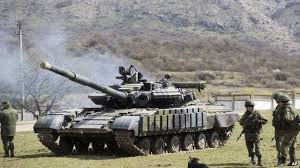There were many new twists in the chain of Middle Eastern upheavals in 2014—from the escalation of civil war in Libya to the rise of the Islamic State (ISIS) in Iraq and Syria—but Russia was only marginally involved in any high-intensity political maneuvering in the region. This is hardly surprising given the preoccupation of the Russian leadership with the Ukraine conflict and its expanding confrontation with the West. At the same time, the Middle East has been the only region in the world where Russia has managed to continue playing a key role, validating its claim as a global power despite Western efforts to isolate it. Opportunities for re-asserting this role have been few and far between, and the attempt to stage talks between Bashar al-Assad’s government and some groups in the Syrian opposition in Moscow in February-March 2015 can hardly yield a breakthrough. The question is whether the impact of the Ukraine conflict on Russian policymaking in the Middle East (and, specifically, toward the Syrian civil war) will shift its emphasis from opportunity seeking to scoring cheap points as a spoiler.










